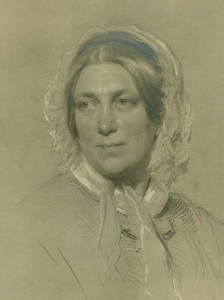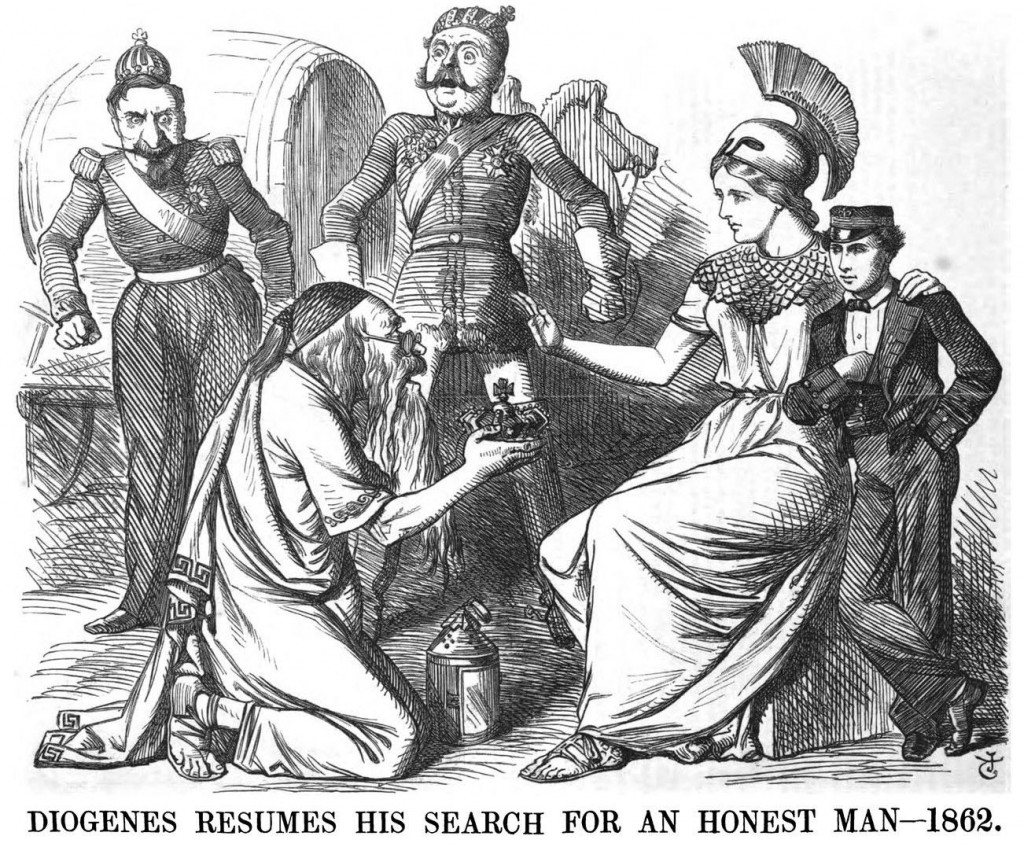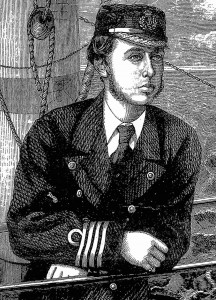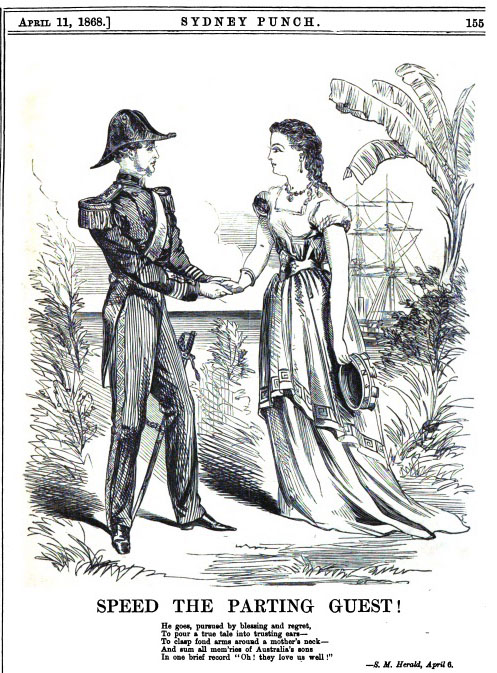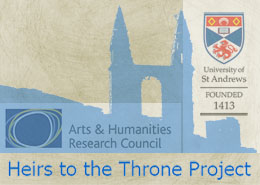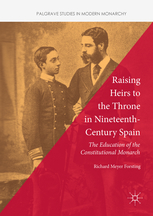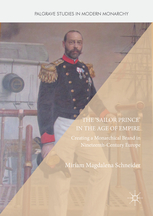“Prince Alfred’s Romance”: Which crown will he choose?
Miriam Schneider
On January 24 1863, the illustrated periodical “Once a week”, one of the leading magazines of its kind, published a commentary on recent political discussions concerning Queen Victoria’s second son, Prince Alfred (1844-1900). “Prince Alfred’s Romance” dealt with the Prince’s proposed election to the vacant throne of the troubled Kingdom of Greece. Signed “From the mountain”, the essay came from the pen of the famous professional writer and social thinker Harriet Martineau (1802-1876). With its idiosyncratic blend of critical, political judgment and feminine, domestic musings it lent a very peculiar touch to the theme of royal princehood.
Ever since the inglorious deposition of King Otto I in October 1862, the question who would succeed that unfortunate monarch on the Greek throne had been discussed with great ardour in Britain – not least since it was likely to recalibrate the European balance of powers in the intractable Eastern Question. But while Prince Alfred, the darling candidate of the Greeks, had been ruled out by the logics of international power politics, Martineau decided to ponder on his own “feelings and sayings”. She refused to believe in “a mere tame obedience to other people’s decisions”, longing instead “to know how the youth himself felt when a crown was offered him […] and he was not allowed to accept” it. After all, Prince Alfred was “eighteen – […] at the very age of enthusiasm and confidence, when all things seem possible to an heroic spirit.” He must have felt the romance attached to the prospect of kingship. In her short piece, Martineau set forth to uncover the “struggle at heart” she suspected to have taken place in the winter of 1862-1863.
In hindsight, it is safe to say that Prince Alfred never had the slightest inclination to become King of Greece. He was second-in-line to the English throne, loved his life as a midshipman in the Royal Navy, and had before him the prospect of inheriting the small, but idyllic duchy of his childless German uncle. But, nevertheless, it might be worthwhile to follow Martineau’s method of “personal talk” which allows us to follow closely the junctures in the biography of one single prince, and to scrutinize the intricacies of royal life-decision-making. As we shall see, the years 1863-1865 opened a ‘window of opportunities’ to Prince Alfred, the potential heir to three thrones, and there was indeed a “struggle at heart” going on at the time – though not the one Martineau imagined.
The many prospects of a minor Prince
In January 1863, Prince Alfred was in the comfortable position of being spoilt for choice.
| Britain | As Queen Victoria’s second son, he enjoyed a life comparatively far off from the limelight surrounding his elder brother. But as long as the recently married Albert Edward, Prince of Wales remained childless, Alfred occupied the linchpin role of a second-in-line. “[…] there are only two eyes between him and the throne”, his father Prince Albert had remarked in 1857. If his mum and brother should die prematurely – sadly not an uncommon possibility – he would be King. |
| Coburg | Prince Alfred’s parents had successfully used the argument that he was a much-needed reserve in order to wrench their son from the influence of his infamous uncle, Prince Albert’s elder brother, Duke Ernst II of Saxe-Coburg and Gotha. This iridescent, licentious German Pumpernickel Prince had been unable to produce legitimate offspring, which meant that his young nephew was likely (and from 1852 officially designated) to inherit his 700-and-something-square-mile patch of a duchy. Prince Albert and Queen Victoria were enthusiastic about the prospect of yet another child’s eventual return to the Prince Consort’s beloved homeland Germany. As Martineau shrewdly observed, by marrying their two eldest daughters to German princes, they had already inaugurated a dynastic programme aiming at “an English growth of German liberties and [… a] strengthening intimacy between the peoples”. But they were determined to keep their son away from Duke Ernst’s immoral lifestyle. |
| Navy | The surest way of doing so was by giving in to the boy’s “spontaneous wish” (Prince Albert) and educating him in the Royal Navy – no ship having ever entered the mountainous region called “Franconian Switzerland” where Coburg was situated. This practical decision also had the welcome side-effect of turning Prince Alfred into Britain’s popular first modern “Sailor Prince”. He had entered the prestigious service in 1858 and, after a period of intense training in line with current middle-class ideals, was preparing for his lieutenant’s examination in January 1863. His dedication to “real work of head and hands” and his “subjection to professional discipline” (Martineau) had endeared him to the sea-loving English nation. |
| Greece | The Greek people had likewise fallen for Prince Alfred’s middy’s uniform and simple dignity, when he had visited Greece and the British protectorate of the Ionian Islands on one of his many cruises in 1859. It was only natural, therefore, that they should revert to his person, when, in 1862, after revolting against the unpopular regime of their previous King, they were looking for a decent successor. A veritable “Alfred movement” swept the country, equating the “Sailor Prince” with the liberal protection of British super power and – dreaming allowed – also with the generous gift of further (Ionian) territory to an expansion-minded youngster kingdom. |
In their exuberance of feelings, the Greek people, in Greece’s first modern referendum, elected the unsuspecting Prince as their sovereign. It remained for the diplomats of the various great powers involved to re-negotiate the tricky candidature. While Harriet Martineau mused about Prince Alfred’s feelings – he might see in his election the “noble task” of “retrieving a kingdom” by “good government” – the youth was probably never involved in the discussions. His mother’s simple reaction that it could “never be” (15 November 1862) “on family and political grounds” (25 November) decided the matter, even if the British government might have been willing to negotiate. By “family” she meant herself and her unwillingness to expose her dynasty to the deathtrap that was Greece. And by “political grounds” she referred to the terms of the 1832 London Protocol, which excluded the reigning families of Britain, Russia and France from providing the King of Greece because they were all compromised by their respective nations’ interests in the region. But although Prince Alfred got out of the Greek election unscathed, another conflict soon arose in its wake, which displayed all the elements of Martineau’s youthful romance and which, in fact, reads like a modern coming-of-age story.
The ‘real’ Struggle at Heart
Although he was spoilt for choice, Prince Alfred might have felt trapped in his prospects as the year 1863 progressed.
| Greece or Coburg |
Once the Greek throne had been rejected in his name, it was offered to various other minor princes. Among them was his very own uncle, Duke Ernst, who appeared to be the next best choice given that no son of Queen Victoria’s was available. For a few days, it seemed that the adventurous Duke might take on the challenge, and Victoria became overexcited with the prospect of Alfred being placed “at once on the Ducal throne[…] in his blessed father’s Dearly loved Home – able to do much good, to Germany, to Europe & England, possibly to become a great Prince, & the father of more” (2 January 1863).Her unsuspecting son, stationed in the Mediterranean, was telegraphed immediately and must have felt shocked, since he soon developed a fever which kept him from taking his lieutenant’s examination. As it turned out, Duke Ernst’s conditions were untenable (he wanted to remain Duke of Coburg and install a regency in Greece). But even though the storm passed, both he and Prince Alfred remained alert to the uncomfortable necessity of making arrangements for the future. |
| Britain or Coburg | In his memoirs, Duke Ernst outlined how the Greek intermezzo awakened in him the determination to settle his inheritance. With the eighteenth birthday of his heir looming large, he wanted Queen Victoria to deliver on her promise that Prince Alfred would end his “maritime project” and fully commit to his Coburg destiny once he had come of age. He bombarded her with letters detailing the proper education of a future German prince. A veritable war of words ensued, in which Queen Victoria and her advisors proved masters in disguising the fact that they were winning all across the board. Duke Ernst wanted his nephew to begin his studies at a German university – it was determined that he went to Edinburgh first to accommodate British sensibilities. Ernst preferred his local university of Jena – Prince Alfred ended up in Bonn in the Prussian Rhineland close to his sisters… The Duke’s wish that his nephew end his naval career, finally, had no success whatsoever. And this time, it was Alfred himself who suddenly spoke up. |
| Coburg or the Navy | The Prince was comfortably settled in Edinburgh, attending lectures on natural science and enjoying life in the Scottish countryside, when, all of a sudden, he threatened to bring down the carefully erected edifice of plans that had been built for his future. On the 1st of February 1864, Queen Victoria had to inform her brother-in-law that her son held the conviction that he was “not cut out for the Coburg position”, that he “wished to stay in the navy” and that he “did not want to make use of his right of succession”[i]. His British and his German destiny had finally conflicted. And while Harriet Martineau, one year previously, had surmised that Prince Alfred might have loved to accept the Greek crown, it now turned out that he would rather have chosen no crown at all.
As Queen Victoria suggested, his change of heart was probably due to his “being together with English seamen”. His service in the navy had made him “one-sidedly English”[ii] and, as the sage King Leopold of the Belgians added, “in England you have many things which Germany in particular lacks; if a young man is ultra-English he will feel comparatively uncomfortable in Germany”[iii] (13 February). Prince Alfred argued along similar lines telling his uncle that he could not satisfactorily “undertake a task in which my whole heart and mind were not engaged and which I did not feel able to do well” (16 March). He dreaded the thought of having to end his hitherto adventurous life to live in a small German provincial town and hoped for an escape route whilst there was still time. |
| Coburg or Canada | That a Dukedom in the middle of Germany represented a steep fall for a British “Sailor Prince” had also been Martineau’s verdict. “He, who is every inch a sailor now, is to be the sovereign of a country which has never smelt the sea”, she remarked in 1863. And she had added that following the end of the promising ‘New Era’ in Prussia the signs of German politicshad become increasingly dreary for people such as the Queen’s liberal-minded sons and daughters. Reforms ushered in by King William I of Prussia, the father-in-law of the Queen’s eldest daughter, had come to a standstill in 1862, and the ensuing constitutional conflict had all but nullified the political position of the Crown Princely couple. Why send another treasured royal child to a small duchy likely to be engulfed by what seemed to be a Prussian return to autocracy? Very much in keeping with Prince Alfred’s own feelings, Martineau suggested instead that his “chief ambition” should be his professional advancement and that as a British naval officer he could “attain to higher personal dignity” than in any other capacity.If he needed a “noble enterprise as a fit aim and occupation for princes”, she added, it need not be the worship of Orientals or the dullness of German court life – but he could “go out […] to our possessions on the Pacific, and lay, broad and deep, the foundations of a new England in Vancouver Island and British Columbia!”
Instead of the three crowns Prince Alfred had been likely to inherit at different stages, Martineau suggested the creation of a fourth one, the Crown of Canada. Her pride in the British Navy reflected the self-evident maritime patriotism of the mid-Victorian age; and her idea to strengthen the bonds between England and the settler colonies by sending Queen Victoria’s sons out there presaged the federalist programmes of the 1870s “Greater Britain” movement. In early 1864, her adventurous vision might well have appealed to Prince Alfred, who was desperate to live a life to his own liking. |
How the story ended
But the Prince’s real prospects were neither as grand nor as open as Martineau liked to paint them in 1863. In fact, the window of opportunities closed as fast as it had opened, and by the end of 1865, his alternative life choices had gone.
Further reading
Ernst, Herzog von Sachsen-Coburg und Gotha, Aus meinem Leben und aus meiner Zeit, 3 Bde., Berlin 1887-89.
[Martineau, Harriet,] From the mountain, “Prince Alfred’s Romance”, Once a week 8/187 (24 January 1863), 120-23.
Bell, Duncan, ‘The Idea of a Patriot Queen? The Monarchy, the Constitution, and the Iconographic Order of Greater Britain, 1860–1900’, The Journal of Imperial and Commonwealth History, 34 (2006), 3–21.
Holland, Robert F., and Diana Weston Markides, The British and the Hellenes: Struggles for Mastery in the Eastern Mediterranean, 1850-1960 (Oxford: Oxford University Press, 2008), chapter 2.
Kiste, John Van der, and Bee Jordaan, Dearest Affie: Alfred Duke of Edinburgh, Queen Victoria’s Second Son, 1844-1900 (London: Sutton, 1984).
Logan, Deborah A., Harriet Martineau, Imperialism and the Civilizing mission (Aldershot: Ashgate, 2010).
Schneider, Miriam, Zwischen Dynastie und Nation: Die deutsch-britischen Universitätsstudien des Prinzen Alfred von Sachsen-Coburg und Gotha, 1863-1865 (unpublished Master’s Dissertation, University of Bayreuth, 2012).
For quotes from Queen Victoria’s journals, confer: http://www.queenvictoriasjournals.org/home.do.
[i] „Er glaube nicht, dass er sich je in Deutschland wohl fühlen werde; er sei überzeugt, daß er für die Koburger Stellung nicht gemacht sei; er wünsche in der Marine zu bleiben und halte es darum für unrecht mich nicht auf die Möglichkeit vorzubereiten, daß er geneigt sein dürfte von seinem Erbrecht auf Koburg keinen Gebrauch zu machen!“
[ii] „Der Seedienst hat ihn sicherlich bei aller seiner Liebe zu Deutschland & zu Koburg im besonderen, einseitig Englisch gemacht.“
[iii] „England hat gar vieles was zumal in Deutschland fehlt, und ist ein junger Mensch ein Ultra Engländer so fühlt er sich in Deutschland verhältnisweise uncomfortable.“


